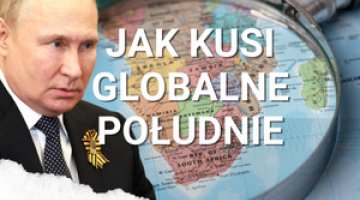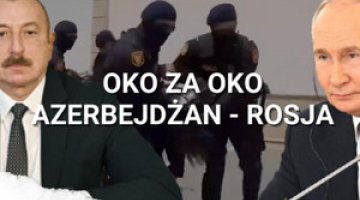Russia’s approach to the pro-European protests in Ukraine
The Russian government took a long time to break its silence on the protests in Ukraine. It was not until the afternoon of 2 December that President Vladimir Putin said that the events in Ukraine more closely resembled pogroms than a revolution; he also stated that the opposition’s actions are an attempt to overthrow the legitimate government and have nothing to do with a European choice, but in fact represent a political agenda related to the presidential election campaign, and are being carried out by a prepared, well-trained group of people. The leader of the Communist party, Gennady Zyuganov, the head of the LDPR, Vladimir Zhirinovsky, and the head of the State Duma’s committee for international affairs, Alexei Pushkov, all made statements in a similar vein. They accused the West of inspiring the protests, stressing that they did not represent the real attitudes of the majority of Ukrainians. On 3 December the Russian Deputy Prime Minister, Dmitri Rogozin, met Ukraine’s Prime Minister Mykola Azarov just before the parliamentary vote of no confidence in his government. After the vote, the Ukrainian side announced that Gazprom had extended until spring its deadline for repaying the charges for gas supplied to Ukraine in the third quarter of this year, and that Russia was planning to cooperate with the Ukrainian aviation industry.
The events in Ukraine are being widely reported in the Russian media. A negative message predominates; the signs of the protesters’ aggression are highlighted, and the chaos and lack of control over the protests – both by the government and the opposition – are emphasised. There are arguments about the danger of Ukraine’s possible disintegration, in particular the rise of separatist sentiment in Crimea. At the same time, there are reports that Viktor Yanukovych will sign a ‘road map’ for Ukrainian-Russian cooperation in Moscow next week.
Commentary
- The pro-European protests in Ukraine have to a large extent offset the success for Russia's foreign policy which the failure of the Eastern Partnership summit in Vilnius represented. This may explain the initial lack of public reaction from the Russian government, which did not want to become the subject of the events in Ukraine in the eyes of public opinion; as well as its attempt to repudiate the protests as being unrepresentative of public sentiment, aimed at disturbing the stability of Ukraine, and being inspired from abroad. While refraining from any harsher reaction, moreover, the Russian government is probably waiting for further developments in Ukraine.
- It is in the Kremlin’s interest to keep in power a weakened President Viktor Yanukovych, who because of the ongoing deterioration – or even a freezing - of his contacts with the EU would be forced into cooperation with Russia. Such a president would be a relatively easy target for Moscow’s policy towards Ukraine, namely its integration into the Customs Union and its consequent inclusion in the Russian zone of exclusive influence. The harsh remarks by Vladimir Putin, and the simultaneous prospect of possible economic support, represent an attempt to put pressure on President Yanukovych, and try to dissuade him from trying to reach any compromise with the protesters. Any such agreement would reopen the possibility of dialogue with the EU for him. At the same time, Russia may fear that implementing any of the opposition’s demands, including a change of government, would strengthen the political position of Yanukovych's opponents, and could trigger a change of government in Ukraine. Russia’s interest in the status quo is demonstrated by Deputy Prime Minister Rogozin’s meeting with Ukraine’s Prime Minister Azarov.





